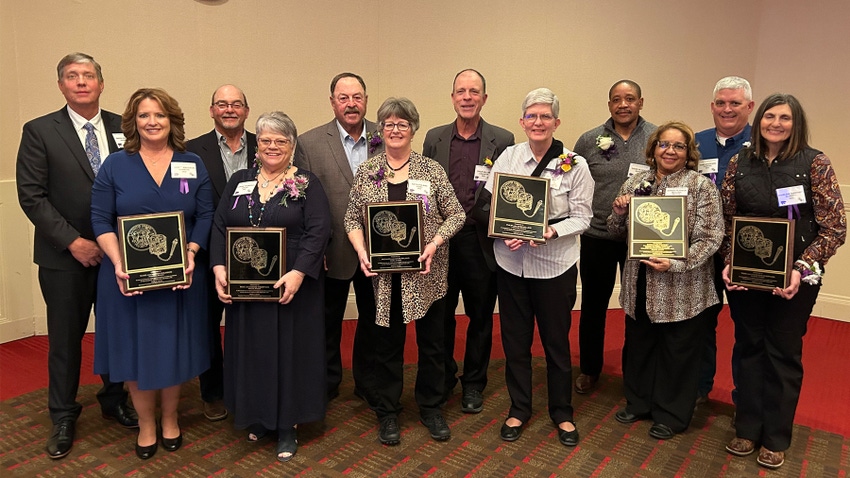
Editor’s note: If you or a family member have been recognized as a Kansas Master Farmer and Kansas Master Farm Homemaker in the past, or if you have family recollections of previous honorees, we’d love to collect those stories for use in recognizing future milestones. Email [email protected] or call 620-253-5497.
It all began in 1927.
Sen. Arthur Capper, then the publisher of Kansas Farmer magazine, wanted to establish an award recognizing top farmers in the state of Kansas — the Kansas Master Farmer award.
He published a scorecard in the magazine, asking farmers to evaluate themselves for consideration. The five criteria on that first scorecard weren’t that much different than today’s criteria: operation of the farm; business methods; general farm appearance and upkeep; home life; and public spiritedness.
According to staff reports, that first year 268 farmers nominated themselves, and a first class of 15 Master Farmers was chosen and the Kansas Master Farmer Association was created.
The announcement of the first class ran in the Nov. 13, 1927, New York Times with this blurb:
“Believing that the expert farmer should be given recognition, The Kansas Farmer today awarded “master farmer” certificates and gold medals to 15 Kansas farmers selected by three judges as the best all-around agriculturists in the state.”
In 1928, the Farmer’s Wife magazine started the Master Farm Homemaker Guild, with help from Kansas State University. The award was meant to recognize women outstanding in the field of home economics and homemaking.
At that time, the two programs operated separately, and the honorees were individuals, rather than couples, according to staff reports.
In 1940, following the closure of the Farmer’s Wife magazine, the fate of the Master Farm Homemaker Award and Guild was in danger. Capper stepped up and took on sponsorship of that award, and at that time, the two programs were combined. It also became the custom to choose married farm couples for the honor. The association and guild still maintain their own identities and slates of officers.
In 1951, after Capper died, Kansas State University Cooperative Extension Service assumed responsibility for the selection process and setting up the annual banquet and sponsorship of the organizations. In 1957, the Kansas Association of Industry and Commerce joined in that sponsorship.
The selection process evolved so that county Extension Councils would nominate a couple to be considered at the state level, using the customary criteria of excellence in agriculture, excellence in the family home, and service to the local and state community. A selection committee appointed by the associate director for Extension and applied research would appoint a committee to choose the class.
Today, the award is jointly sponsored by Kansas Farmer magazine and K-State Research and Extension, with financial support from Kansas Farm Bureau, Frontier Farm Credit and American AgCredit.
The Class of 2023 marks the 96th class of Kansas Master Farm Families, with more than 600 honorees recognized in its history. Today’s winners receive plaques with reproductions of the original medals that were given out to Master Farmers in the early years.
Each year, six couples are chosen for each class: one from each of the four K-State Research and Extension districts, and two from the state at large. Through the decades, selection of the Kansas Master Farmer and Master Farm Homemaker reflected the times.
Honorees have always primarily been outstanding farmers and homemakers. But volunteering in communities, service in state farm organizations, and leadership at the state and national level on agricultural and farm family topics started to be seen in the applications.
This year, K-State Research and Extension and Kansas Farmer magazine chose to rename the award the “Kansas Master Farm Family.”
The Kansas Master Farmer Association and Kansas Master Farm Homemaker Guild continue to meet annually in March to hold their annual business meetings and come together for a joint recognition banquet. Honorees of the class are invited to join the association and guild. The groups typically come together in the fall during the Kansas State Fair each year, as well as assorted tours and gatherings through the year.
The association and guild raise funds for philanthropic outreach, such as 4-H scholarships for high school seniors or college undergraduates. They’ve also made several considerable donates to the Rock Springs State 4-H Center, Junction City, for facilities improvements.
Read more about:
Master FarmersAbout the Author(s)
You May Also Like






